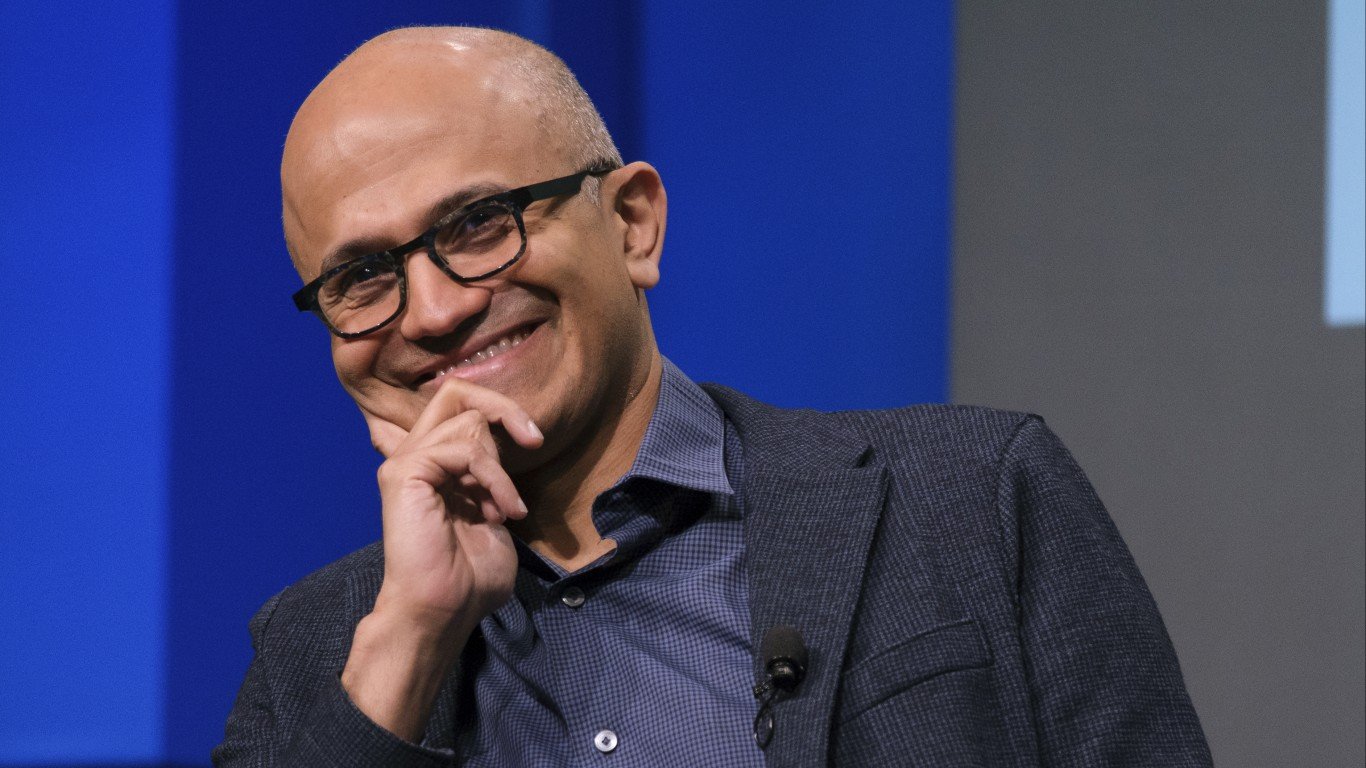

Premarket action on Wednesday had the three major U.S. indexes trading mixed. The Dow Jones industrials were down 0.09%, while the S&P 500 was up 0.19% and the Nasdaq 1.09% higher.
All 11 market sectors closed lower on Tuesday. Materials (−2.15%) and technology (−2.09%) posted the day’s worst losses. Utilities (−0.09%) and consumer staples (−0.12%) had the smallest declines. The Dow closed down 1.02%, the S&P 500 down 1.58% and the Nasdaq down 1.99% on Tuesday.
Two-year Treasuries dropped 26 basis points to end Tuesday at 3.86%, and 10-year notes fell by 12 basis points to close at 3.4%. In Wednesday’s premarket, two-year notes were trading at around 3.92% and 10-year notes at about 3.41%.
Tuesday’s trading volume was above the five-day average. New York Stock Exchange winners outpaced losers by 2,538 to 496, while Nasdaq decliners led advancers by more than 3 to 1.
Before U.S. markets open on Wednesday, 59 companies are scheduled to report quarterly results.
About 75% of companies reporting earnings on Tuesday topped expectations, but investors appeared to be looking ahead and wondering where growth was going to come from. Treasury notes took a pounding, as did bank stocks.
After U.S. markets open on Wednesday, the U.S. Energy Information Administration will release its weekly report on petroleum inventories. The American Petroleum Institute released its inventory report for last week after markets closed Tuesday. Crude oil stockpiles fell by more than 6 million barrels, gasoline inventories fell by nearly 2 million barrels and distillates added 1.7 million barrels.
Monday’s best performer among S&P 500 companies was insurance vendor Brown & Brown Inc. (NYSE: BRO). Shares added 3.19% after the company reported late Monday that profits and revenue beat consensus estimates.
First Republic Bank (NYSE: FRC) also reported quarterly results late Monday, and a bad quarter got much worse. The stock dropped 49.38% after the bank reported that deposits declined by 40% in the first quarter. Bloomberg reported later Tuesday that the bank was looking for a buyer for $50 to $100 billion in assets, a move that would shrink its balance sheet and provide some cash.
After markets closed Tuesday, Alphabet Inc. (NASDAQ: GOOGL) and Microsoft Corp. (NASDAQ: MSFT) were among dozens of companies reporting quarterly results. Microsoft beat Wall Street estimates on both the top and bottom lines. The company forecast growth of around 27% for its cloud business in the current quarter but expects the personal computing business to lag.
Alphabet also beat top-line and bottom-line estimates, but search ad revenue was flat and YouTube ad sales declined by 2.6%. The company also added $70 billion to its share repurchase plan. In premarket trading Wednesday morning, Alphabet shares were up about 1%, while Microsoft stock was up 8%. These two, plus two other tech mega-caps yet to report quarterly results this week, were pushing the Nasdaq Composite index up on Tuesday morning.
Both companies emphasized the next big thing (artificial intelligence, or AI), and how each views what the future holds for the technology. Microsoft’s story is probably more appealing because it is more dramatic. CEO Satya Nadella said that Microsoft’s Bing search engine took some unspecified market share from Google in the first quarter, the beginning of what he called a “generational shift in the largest software category–search.”
Alphabet CEO Sundar Pichai had less to crow about, especially given the pig’s breakfast the company made when it rushed out an AI bot shortly after Microsoft released OpenAI’s ChatGPT. Alphabet has combined two of its AI research units into a single group. Pichai commented that the company had “lots more to come.” That is certainly true, but there is little question that the company was wrong-footed by Microsoft back in February.
Two more tech giants, Meta Platforms Inc. (NASDAQ: META) and Amazon.com Inc. (NASDAQ: AMZN), have yet to report quarterly results. Meta will release its report after markets close Wednesday, and Amazon reports late Thursday. Both also have AI projects in the works, and both are sure to spend some time beating the AI drum.
Meta, especially, needs to demonstrate that it has growth prospects. The company has not posted a year-over-year revenue increase in the past three quarters. Firing thousands of employees will help control costs, but that is just a one-time hit.
In February, Meta launched a new AI group that CEO Mark Zuckerberg said is going to “turbocharge our work in this area.” He also admitted that Meta is way behind competitors in “getting to the really futuristic experiences.” Nonetheless, Zuckerberg says he is “excited about all the new things we’ll build along the way.” Be still my beating heart.
Amazon has its own cloud-based AI platform called Bedrock that allows customers to build their own generative AI chatbots, text and image generators, and customized search engines. Amazon is not just offering a service, it is giving its customers access to its own large-language model along with tools to build applications the customers themselves want. This approach will get less press coverage, but it may put more cash in Amazon’s coffers and in investors’ brokerage accounts.
Sponsored: Find a Qualified Financial Advisor
Finding a qualified financial advisor doesn’t have to be hard. SmartAsset’s free tool matches you with up to 3 fiduciary financial advisors in your area in 5 minutes. Each advisor has been vetted by SmartAsset and is held to a fiduciary standard to act in your best interests. If you’re ready to be matched with local advisors that can help you achieve your financial goals, get started now.
Thank you for reading! Have some feedback for us?
Contact the 24/7 Wall St. editorial team.
 24/7 Wall St.
24/7 Wall St.


